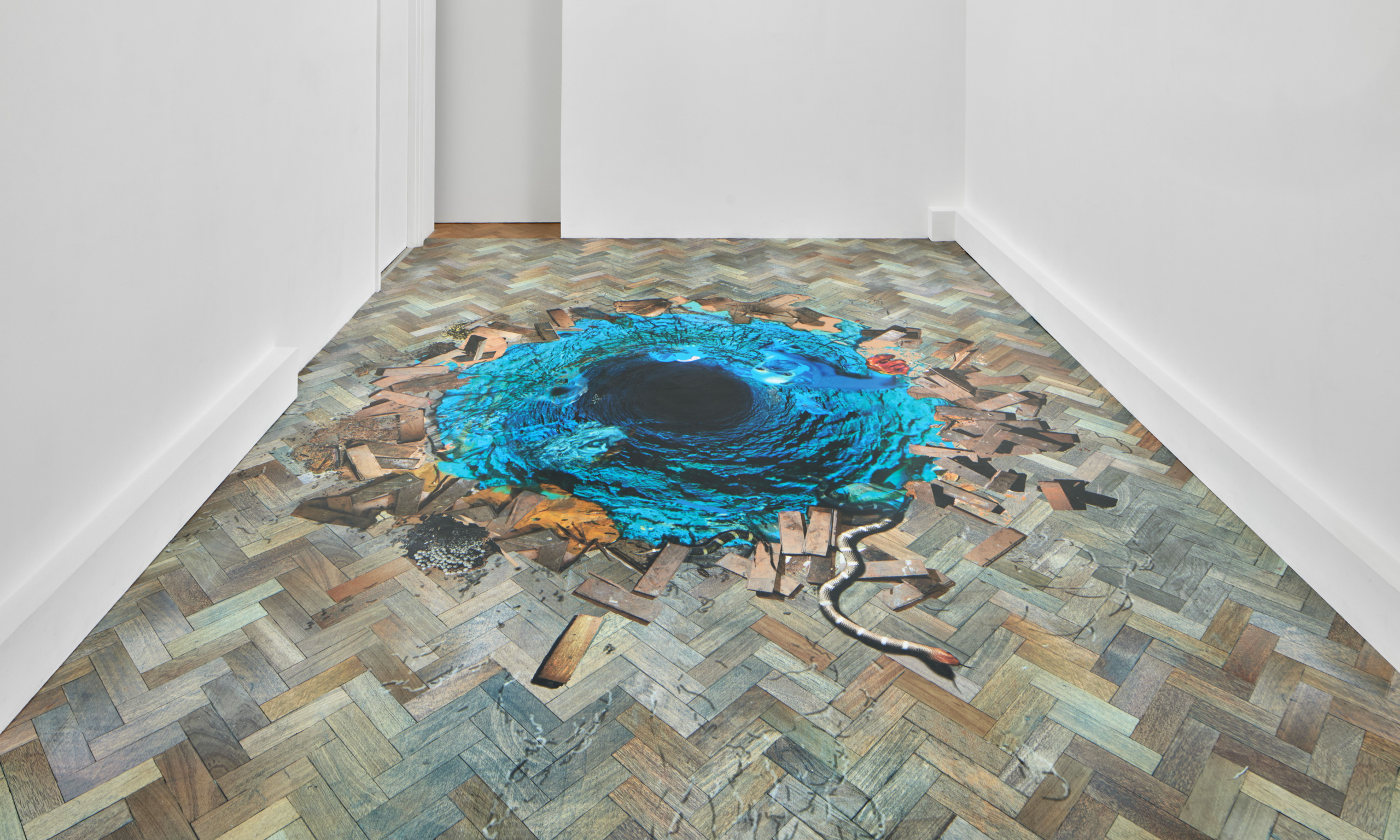Arcadia Missa in London is one of 50 galleries taking part in Condo London 2024. The gallery is hosting Bridget Donahue and High Art with a solo show by John Russell Image: Courtesy of the artist, Bridget Donahue, New York, High art, Paris and Arcadia Missa, London. Photo: Tom Carter
Could the cut-throat art market finally be shedding its macho image? As Condo London returns this weekend for the first time since the pandemic, dealers are making the case for a more compassionate and community-led industry to help weather some of the headwinds blighting the trade.
Antonia Marsh, the founder of Soft Opening gallery, says: “The era of competition between galleries has been replaced by a culture of care and generosity, which is a buoyant energy that bodes really well for the market.”
After a four-year hiatus, the 2024 edition of Condo London is largely unchanged in its format. In total, 50 international galleries—mostly from the US and Europe but also from Tehran, Tokyo and Tbilisi—will share 23 spaces across the UK capital. Established dealers such as Maureen Paley, Sadie Coles, Kate MacGarry and Stuart Shave are taking part alongside a cohort of mid-tier and younger galleries that have come of age since the pandemic, including Arcadia Missa and Emalin.
Vanessa Carlos, the co-founder of Carlos/Ishikawa gallery, says she began Condo in 2016 as “a small experiment” aimed at “questioning the ethos and ways of doing that we inherited from an older generation, which felt increasingly unsustainable and unpleasant”. She points out that the art world is a reflection of the world at large, “so there was often an unquestioning acceptance—even an embracing at times—in our industry of problematic ideas we see in the larger structures that surround us, regarding a favouring for competition, corporation, homogenisation and Western dominance”. By taking action collaboratively, Carlos says galleries could “create different ways of doing things relatively quickly and easily—unlike most other spaces we exist in”.
There was no question of resuming Condo until galleries in China could travel and take part, Carlos says, “because the art scene there is so important”. Plans for the return of Condo in Shanghai, New York and Mexico City are still being firmed up, as are plans to establish the project in other regions, such as Cape Town and Dubai.
Although notably different in many ways, not least its four-week duration (this year the event runs from 20 January to 17 February), Condo has been touted as an alternative to art fairs. However, Carlos thinks Condo is a very different prospect. “Quality fairs such as Art Basel remain completely vital and necessary for galleries, but there are still too many,” she says. “Post-pandemic and social media acceleration, I think we want, more than ever, for things to be focused and digestible, rather than a huge unedited outpour of information and content; to commune together, to meet each other; to have time and space to encounter art—quality over quantity and less homogeneity.”
Though not unheard of before 2020, collaboration between galleries became more common during the pandemic as businesses struggled to stay afloat. Marsh thinks the collaborative model works particularly well for emerging galleries—Soft Opening turns six this year and is taking part in Condo London for the first time. “[Emerging galleries] often have similar or aligned visions for our programmes and strategy,” she says.
Soft Opening, which is hosting Kosovan gallery LambdaLambdaLambda as part of Condo, is also currently collaborating with Paul Soto in Los Angeles, where the London gallery is holding five exhibitions over the course of ten months while Soto focuses on opening a second space in New York. “This collaboration enables us to pool our resources, share our audiences and reach new people,” Marsh says.
For Rózsa Farkas, the owner and founder of Arcadia Missa, Condo is “more of a community than a platform”. Running a small business like a gallery can, she says, “at times feel like an uphill battle against homogenisation, mediocrity and total capitulation to see art as only containing a value that is monetary”. Condo, on the other hand, affords a sense of “togetherness”, which Covid denied many.
For this edition, Arcadia Missa is changing tack from previous years by hosting two galleries—Bridget Donahue and High Art—to present a solo show by a single artist: John Russell (prices range from $5,000 to $50,000). Farkas points out: “The result of a show like this, with three galleries showing one artist instead of all bringing different things, is that less art gets shipped, so there’s a smaller carbon footprint and there’s more collaboration, so it’s even less focus on individual gallery profit.”
Despite some of the economic and political pressures on the market, Farkas thinks London is “in good shape right now”, with serious collectors “tending to acquire art whatever state the market is in, as they are also invested in the legacy of the work”.
Launched more than 25 years ago, The Approach is one of the more established galleries taking part in Condo, hosting Marfa’ Projects from Beirut. Nonetheless, survival is still on the minds of The Approach’s founders Jake Miller and Emma Robertson, who say working collaboratively with other galleries “is not only a more pleasant way to do business but is ultimately a way to survive”.
Coming in January, which the pair acknowledge “can be a tough month”, Condo “brings a welcome energy back to London after the holidays”. They add: “A project like this shows that people are still curious and appreciative of getting out to galleries in person, as well as the evolution of the DIY to DIT—do it together—model.”

